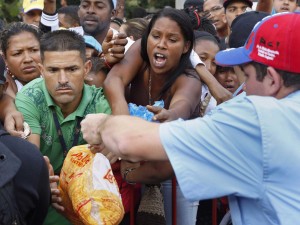
Economic sanctions imposed by the West on Putin’s friends and their enterprises, as well as on the most sensitive sectors of the Russian economy—the oil and gas industries and the capital market—have been in effect for more than two years. These measures, however, have failed to restore Ukraine’s sovereignty over the Donbass and Crimea, or to make the Russian military admit its obvious guilt in the crash of the Malaysian Airlines plane. Russian citizens, intoxicated by Kremlin propaganda, do not seem to be interested in the reasons behind the lack of accessible credits, the rise in prices, and the freezing of pension savings, but continue to largely support the aggressive international policy of their presumptuous rulers. So what is the result of the renowned Western sanctions?
In two and a half years, Russia has lost a considerable amount of foreign investments that the country was supposed to receive, and was forced to suspend indefinitely the exploration of new oil and gas fields due to the ban on the import of technologies and equipment. Both factors will continue to have a negative effect on the revenues of the Russian budget. Putin’s economic advisers—the market-oriented Aleksei Kudrin and the anti-market Sergei Glaziyev — both evaluate Russia’s losses resulting from the annexation of Crimea and the introduction of sanctions at no less than $200 billion. According to other experts, the largest part of these losses amounting to $170 billion was caused by Western sanctions.
Even Putin himself recently admitted that the country needed technologies, the access to which was restricted due to sanctions. However, instead of meeting the West halfway by de-escalating tensions in Ukraine’s southeastern regions, the Russian president signed a decree suspending the weapons-grade plutonium utilization deal, presenting the West with an ultimatum: lift all sanctions and compensate the country for the damage they have caused to the Russian economy, or else face the end of nuclear disarmament and prepare for mutual annihilation, in the style of North Korea.
This is not the first time the Kremlin has founded its foreign policy on the principle of “asymmetrical responses.” Suffice to recall the US Magnitsky Act and the Kremlin’s retaliatory ban on US adoptions of Russian children, or the food embargo prohibiting the import of a whole list of products from Europe and North America introduced by the Kremlin to “punish” Western manufacturers for anti-Russian sanctions imposed by their governments. In both cases, Russian citizens were the first to suffer from such “asymmetrical responses.” No matter how much tame Kremlin economists try to attribute the 45 percent growth in the country’s agricultural production to the food embargo and import substitution, the real reason behind the increase in production is the rise in prices caused by the devaluation of the ruble by the same 45 percent in late 2014. Statistical data show that the food basket has become more expensive: the retail price for beef grew by one third, and the price for buckwheat increased by almost 200 percent. In the absence of competition, domestic products proved to be much more expensive than their European equivalents. Both Putin’s adviser Kudrin and the opposition-minded Sergei Guriyev, chief economist at the European Bank for Reconstruction and Development, emphasize that there is in fact no import substitution either in the agricultural sector or in the country’s economy in general.

The Russian government has decided to extend the food embargo at least until the end of 2017. Our audacious Czar, merciless toward Russians, has yet again demonstrated his bravado with regard to Western countries in the Indian city of Goa by retorting that “they could screw themselves” to the question about the possibility of a partial lifting of sanctions. Although by “them” Putin obviously meant Western countries, in reality it will be the other way around: if truth be told, Europe and the United States do not care if life in Russia is the same as in Venezuela or North Korea. Western governments have enough problems of their own. And ultimately we will be the ones to screw ourselves—not the West.





